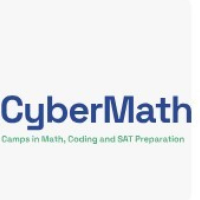Summer science programs for high school students offer a unique opportunity to dive deep into the world of scientific inquiry, providing experiences that go far beyond the traditional classroom setting. These programs are not just about learning science; they are about experiencing it. They catalyze personal and academic growth, nurturing a passion for discovery and innovation. Here’s how these programs benefit students:
- Enhanced Learning Opportunities
Summer science programs allow students to explore topics in greater depth than they typically would during the school year. The curriculum often includes hands-on experiments, research projects, and advanced theoretical concepts that are not usually covered in high school classes. This exposure helps students gain a deeper understanding of scientific principles and methodologies. Moreover, they often have access to state-of-the-art laboratories and equipment, which enhances their learning experience.
- Development of Critical Thinking and Problem-Solving Skills
Participating in a science program encourages students to think critically and solve complex problems. They learn to formulate hypotheses, design experiments, analyze data, and draw conclusions. These skills are essential not only for scientific pursuits but also for everyday decision-making and problem-solving. The emphasis on inquiry-based learning helps students develop a scientific mindset, where questioning and exploring are fundamental.
- Exposure to Real-World Applications
Many summer science programs collaborate with universities, research institutions, and industries. This collaboration provides students with a glimpse of how science is applied in the real world. They may work on projects that address current scientific challenges or contribute to ongoing research. Such experiences help students understand the relevance of science in solving real-world problems and can inspire them to pursue careers in scientific fields.
- Building Confidence and Independence
Engaging in scientific research and projects during these programs fosters a sense of independence and confidence. Students often work in teams or individually on projects, requiring them to take initiative, make decisions, and manage their time effectively. Completing a challenging project or experiment boosts their self-esteem and demonstrates their capability to tackle complex tasks.
- Opportunities for Networking
Summer science programs attract students from diverse backgrounds who share a common interest in science. This creates a rich environment for networking and collaboration. Students build relationships with peers, mentors, and professionals in the field, which can be invaluable for future academic and career opportunities.
- Preparation for College and Careers
Participation in a summer science program can significantly enhance a student’s college application. It demonstrates a genuine interest in science and a proactive approach to learning, qualities that are highly valued by college admissions committees. Additionally, the skills and knowledge gained during these programs are directly applicable to college coursework and can give students a head start in their academic careers.
- Personal Growth and Development
Beyond academic and career benefits, summer science programs contribute to personal growth. Students often live away from home, sometimes for the first time, which helps them develop independence and life skills. They learn to collaborate with others, navigate new environments, and overcome challenges.
- Inspiration and Passion for Science
Perhaps one of the most significant benefits of summer science programs is the inspiration they provide. Immersing students in the world of science, exposing them to cutting-edge research, and allowing them to work alongside passionate professionals can ignite a lifelong love for science.
Summing up, summer science programs for high school students offer a wealth of benefits that extend far beyond the classroom. They provide enhanced learning opportunities, develop critical thinking skills, offer real-world applications, build confidence, create networking opportunities, prepare students for college and careers, foster personal growth, and inspire a passion for science.

